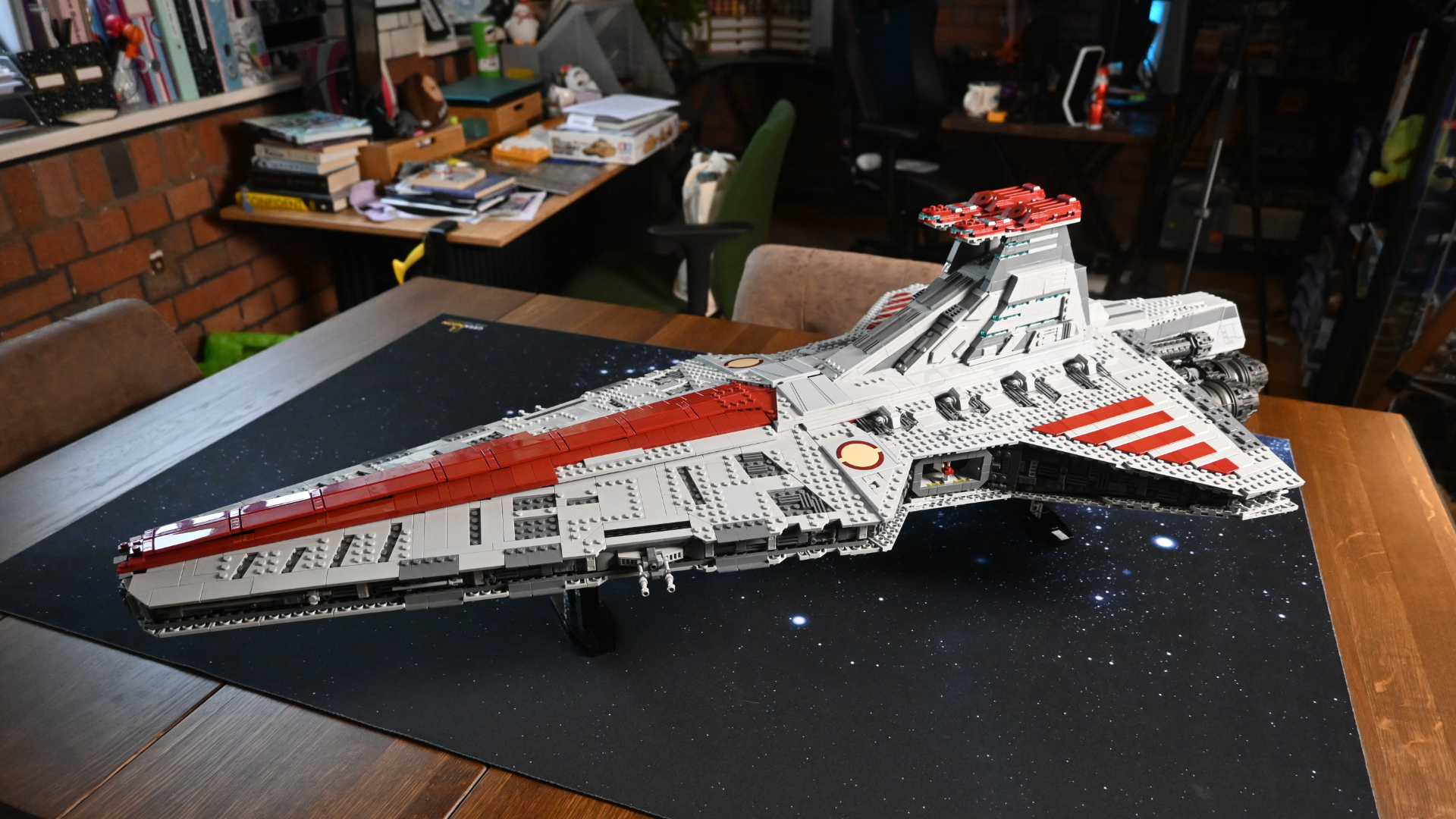Universal Translator May Be Possible
Breaking space news, the latest updates on rocket launches, skywatching events and more!
You are now subscribed
Your newsletter sign-up was successful
Want to add more newsletters?

Delivered daily
Daily Newsletter
Breaking space news, the latest updates on rocket launches, skywatching events and more!

Once a month
Watch This Space
Sign up to our monthly entertainment newsletter to keep up with all our coverage of the latest sci-fi and space movies, tv shows, games and books.

Once a week
Night Sky This Week
Discover this week's must-see night sky events, moon phases, and stunning astrophotos. Sign up for our skywatching newsletter and explore the universe with us!

Twice a month
Strange New Words
Space.com's Sci-Fi Reader's Club. Read a sci-fi short story every month and join a virtual community of fellow science fiction fans!
The universaltranslator is a classic Star Trek plot device that makes encounters withalien civilizations much less awkward. "Alienese" goes in andAmerican English comes out — at least on television in 1967.
But that's just television. When a Professor of BiologicalAnthropology and Linguistics starts talking about it, however, that's somethingworth taking a closer look at.
Terrence Deacon of the University of California, Berkeley, posits that all language has a universal structure. Regardless of whether thealiens communicate with sounds, pictures or even odors, there must be a set ofrules that govern the communication.
One common way to denote an object, for example, involvespointing to it and then emitting an expression. Whether you use an indexfinger, a tentacle or antennae, you've just directly referenced the object.
Professor Deacon argues that even abstract symbols can beunderstood as referencing words that point directly to real objects in the physicalworld we all share. If that is true, it should be possible to have a devicethat uses software to tease apart the symbols of a completely alien languageand then determine how they reference the world; in other words, a universaltranslator.
Other science-fictional references to the idea of auniversal translator for alien speech include the famous Babel Fish fromDouglas Adams' 1979 novel The Hitchhiker's Guide to the Galaxy and the translator discsfrom Larry Niven's 1970 novel Ringworld.
As far as I know, the first science-fictional reference tothe idea of automatic speech translation is found in Hugo Gernsback's 1911classic Ralph124c 41 +. It only worked for human languages, though; appropriately, it wascalled a languagerectifier. The first real-life efforts in the area of automated languagetranslation came about in the late 1940's, as US intelligence agenciesstruggled with a mass of Russian language documents.
Breaking space news, the latest updates on rocket launches, skywatching events and more!
(This Science Fiction in the News story used withpermission of Technovelgy.com)
- Real Trekkie Tricorder Invented
- Top 10 Star Trek Tech
- How We Present Ourselves to Aliens
Bill Christensen is the founder and editor of Technovelgy, a website dedicated to cataloguing the inventions, technology and ideas of science fiction writers. Bill is a dedicated reader of science fiction with a passion about science and the history of ideas. For 10 years, he worked as writer creating technical documentation for large companies such as Ford, Unisys and Northern Telecom and currently works to found and maintain large websites. You can see Bill's latest project on Twitter.
